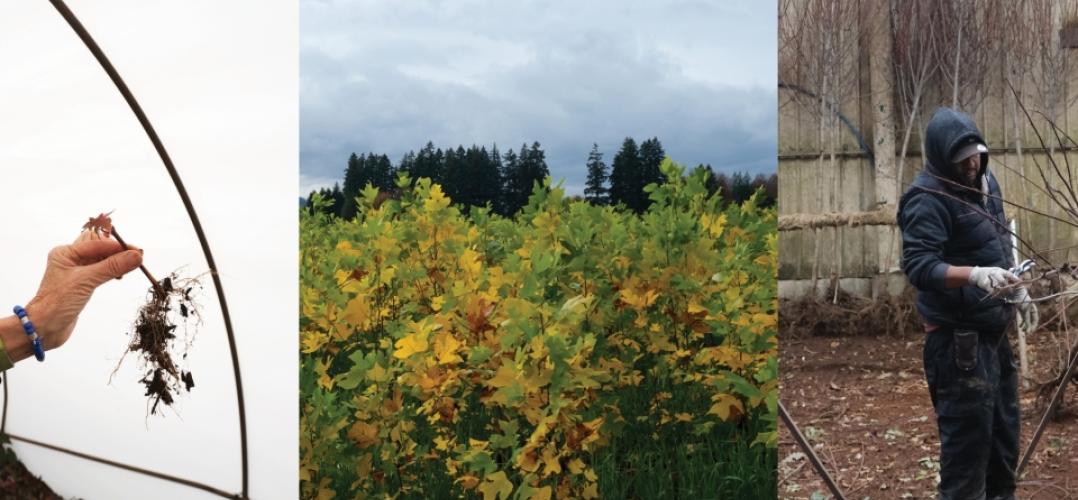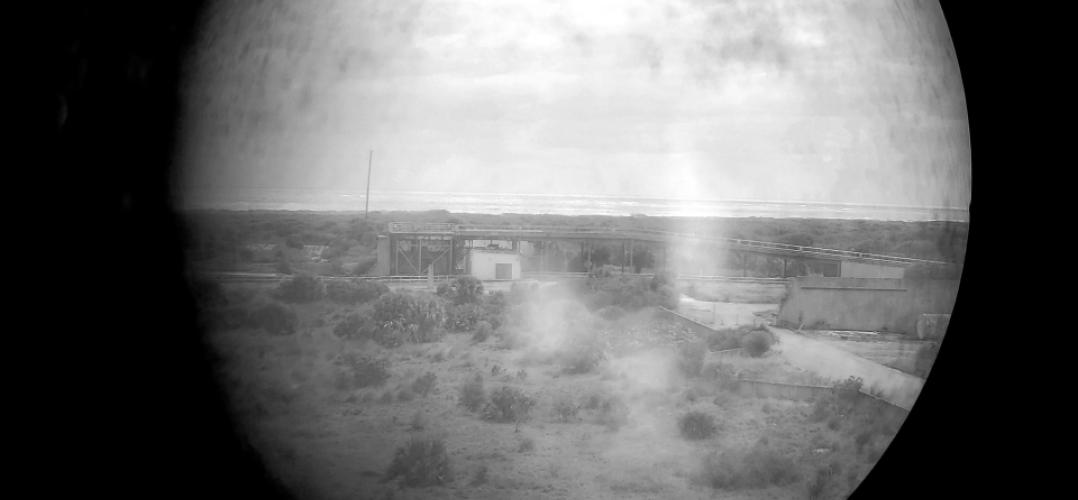Join our mailing list and receive invitations to our events and updates on our research in your inbox.
News + Events

Before a Plant Arrives on Site
Landscape designer and researcher Leah Kahler has been appointed the 2024-2025 McHarg Fellow in the Department of Landscape Architecture at the Weitzman School. Kahler is a landscape designer and researcher whose work is motivated by justice-oriented storytelling though the lens of landscape. Her research explores the socioecological legacies of the plantation landscape, focused on sites of labor, extraction, and production in the American South.
Kahler received a Master of Landscape Architecture from the University of Virginia, where her research as a Benjamin C. Howland fellow explored the possibilities of an abolition ecology through speculative fiction at the site currently known as the Louisiana State Penitentiary. She was a 2021 Landscape Architecture Foundation Olmsted Scholar finalist, and she received the LAF Honor Scholarship in Memory of Joe Lalli, FASLA.
Kahler joins Weitzman from Reed Hilderbrand's practice in Boston, where she played a key role in the design and construction of a 24-acre public park on the Tennessee River in Knoxville. Kahler has also taught landscape architectural representation at Boston Architectural College. No stranger to Philadelphia, she holds a Bachelor of Arts in Anthropology and the Growth and Structure of Cities from Bryn Mawr College.
Housed in the Department of Landscape Architecture at Weitzman, The McHarg Center was founded in 2017 as an interdisciplinary platform for faculty research, teaching, and advocacy supporting the future of our planet.

Greetings From Earth
Join the McHarg Center for Urbanism and Ecology on Earth Day 2025 for a community conversation highlighting ongoing McHarg Center-supported faculty research from the perspective of Department of Landscape Architecture faculty and their student research assistants. This year-end celebratory event will take place on Tuesday, April 22 at 6:30pm in the Kleinman Center at the Fisher Fine Arts Library, and will feature an interactive panel discussion with three faculty/student research teams.
Please join us for delicious planet-conscious refreshments, and bring your voice to the conversation!

2025-2026 McHarg Fellow Announced
The McHarg Center for Urbanism and Ecology is thrilled to announce the selection of the 2025-2026 McHarg Fellow, Tami Banh!
Tami is a Vietnamese architect and landscape architect based in New York City. Her work explores ways of restructuring relationships between people and the environment through design, building, writing, and making. Focused on critical representation, climate resilience, and human / more-than-human cohabitation, her research and practice engage with landscapes at the intersection of ecology, infrastructure, and community resilience.
Tami’s current research project, “Shared Waters, Divided Landscapes,” explores how cultural landscapes, governance frameworks, and ecological practices shape the Mekong River across national boundaries, examining how policies, traditional knowledge, and representations of the river influence its physical and cultural transformations. Through field and archival research, comparative study, and community engagement, the work explores alternative frameworks for understanding and designing within contested and dynamic waterscapes.
Previously, as an Associate at SCAPE Landscape Architecture, Tami has led and supported public landscape infrastructure projects that integrate placemaking, ecological design, and social impact such as Living Breakwaters and Hudson Highlands Fjord Trail. She also served as an Associate Adjunct Professor in the Urban Design program at Columbia University and has worked at SHoP and ZGF Architects. Tami holds a Bachelor of Architecture from the University of Southern California and a Master of Architecture and Master of Landscape Architecture with Distinction from Harvard University’s Graduate School of Design.
Tami will follow our exceptional 2024-2025 McHarg Fellow, Leah Kahler, who will present the culmination of a year of teaching and research on Thursday, April 24 at 6.30pm in the Upper Gallery of Meyerson Hall. Leah’s research and spring seminar “Clones, Zones, and Migrants” explore the socioecological legacies and implications of the plantation landscape and the American nursery industry, focused on sites of labor, extraction, and production.
We’re looking forward to the year ahead as Tami Banh joins the Weitzman community and as Leah Kahler moves on to her next exciting chapter!
McHarg Fellowship
The McHarg Fellowship is a teaching and research award given by the McHarg Center for Urbanism and Ecology to an emerging voice in landscape architecture.
The Fellowship is awarded competitively on an annual basis and the selected fellow is expected to be in residence at the University of Pennsylvania, in Philadelphia, full-time for one academic year.
The purpose of the Fellowship is to create a unique opportunity for an emerging professional and/or academic who would benefit most from support to conduct research, to teach, and to be mentored by faculty during the term of the Fellowship.

Ground Control: Technical Lands for Departing Earth
Jeffrey S Nesbit is an architect, urbanist, founding director of the research group Grounding Design. His work focuses on processes of urbanization, infrastructure, and the evolution of "technical lands." His experience spanning over a decade includes leading design teams for public architecture and large-scale urban projects, along with leading sponsored design research projects for city governments, local institutions, and NGOs. He is author of several books on infrastructure and urbanization, including Ground Control: A Design History of Technical Lands and NASA’s Space Complex (Routledge, 2024), Technical Lands: A Critical Primer (Jovis, 2023), and Nature of Enclosure (Actar, 2022). Nesbit is currently assistant professor in history and theory of architecture and urbanism in the Tyler School of Art and Architecture at Temple University.